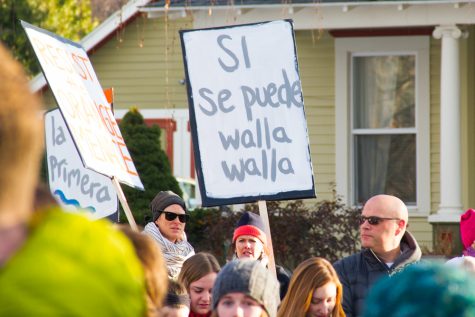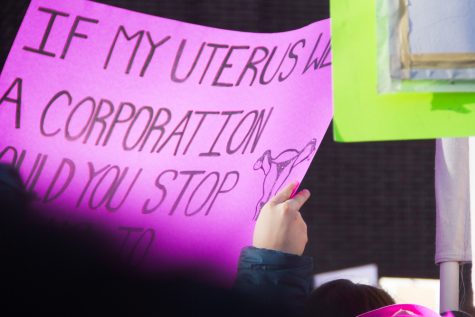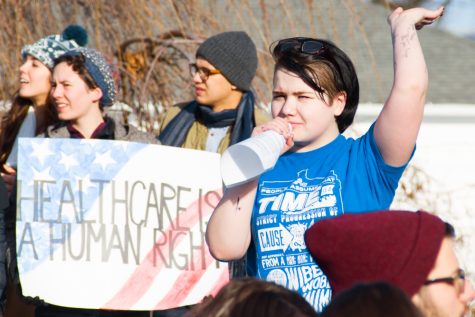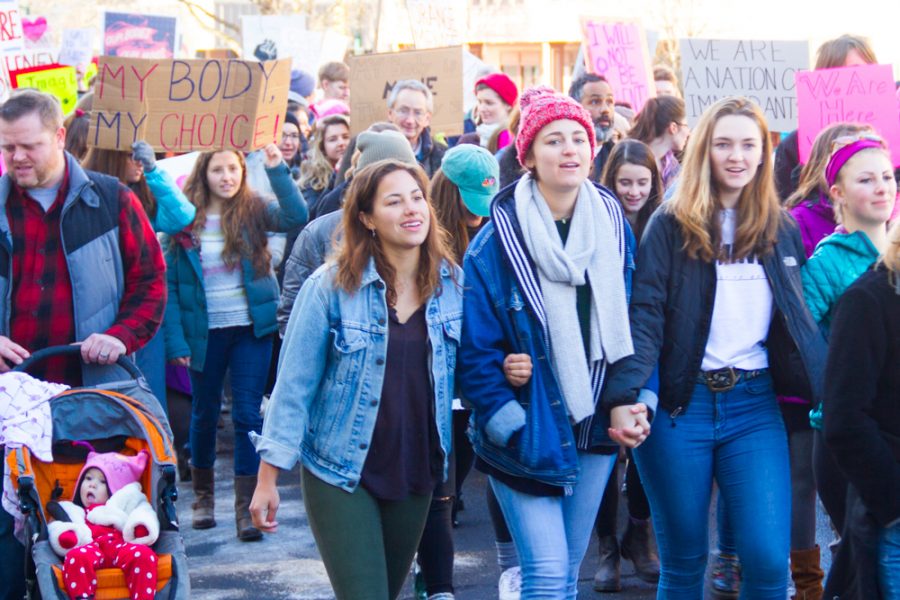
Natalie Mutter
Less than 24 hours after former businessman Donald J. Trump was sworn into office as president of the United States, protestors took to the streets in more than 200 cities across the country and across the globe. More than one million people came together in their separate locales to support one another and to defend their fundamental liberties both as women and as human beings.
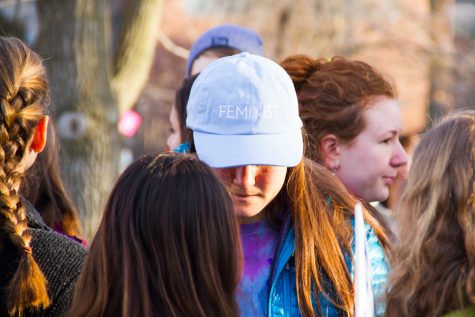
In Walla Walla, nearly 2,500 activists assembled near the First Congregational Church and marched down Alder carrying signs and chanting slogans.
“What do we want?” “Justice!” “When do we want it?” “Now!”
Activists headed down Alder until they turned right and returned back up Main St., blocking traffic and traveling with a police escort. Local restaurants provided hot coffee and tea for marchers.
As Nancy Monacelli, one of the local organizers said, “The point of the march is to be positive, to think of what we are in favor of, not against. To hold one another up, to be supportive of one another and to let the folks within the community see that there are a lot of people here who want Walla Walla to be open.”
Monacelli has lived in Walla Walla for nearly 21 years, working with local nonprofits and the Washington State Democratic Party. She served as a state committee member for eight years and is currently an elected member of the Democratic National Convention.
“All politics is local and this is a totally locally focused event for us,” Monacelli said. “Certainly we’re aligned with other events around the nation, but this is totally local and to support our neighbors.”
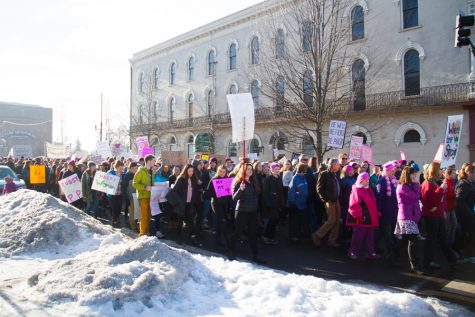
Though the march in Walla Walla didn’t attract the huge crowds that cities like Chicago and Boston saw, it was no less significant. In a city with approximately 31,000 residents, the 2,500 activists that participated in the Women’s March on Walla Walla represent more than 10 percent of the city’s population. The turnout was especially surprising considering President Trump won more than 54 percent of the votes in Walla Walla County, and tweeted Saturday that he was unimpressed with the women’s marches around the country.
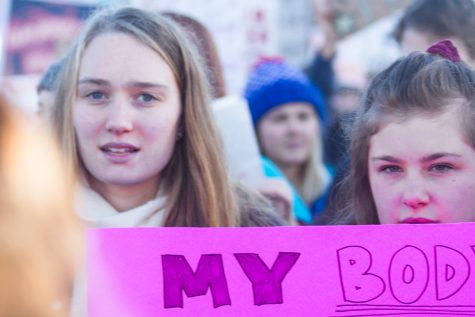
Sophomore Rebecca Wertheimer was involved with spreading the word about the march on campus.
“I think [students] are becoming more political,” she said, “Maybe not always getting involved, but I have definitely been aware of a lot more conversations going on around campus on topics that people would have stayed silent about before [Trump’s election].”
As a liberal academic institution, Whitman occupies a unique space in Walla Walla. The local community is more conservative than the campus, and in the past this has complicated the relationship between the Whitman student body and Walla Walla activists.
Sophomore and Co-President of FACE Willa Johnson also worked to disseminate logistical information about the march to Whitman students.
“I thought it was so incredible to be a part of this Walla Walla community, but also this whole community of people around the country and around the world,” she said.
Johnson also mentioned the accessibility of this march. Some of the speeches and chants were in Spanish, which opened up the space to more of the local community.
